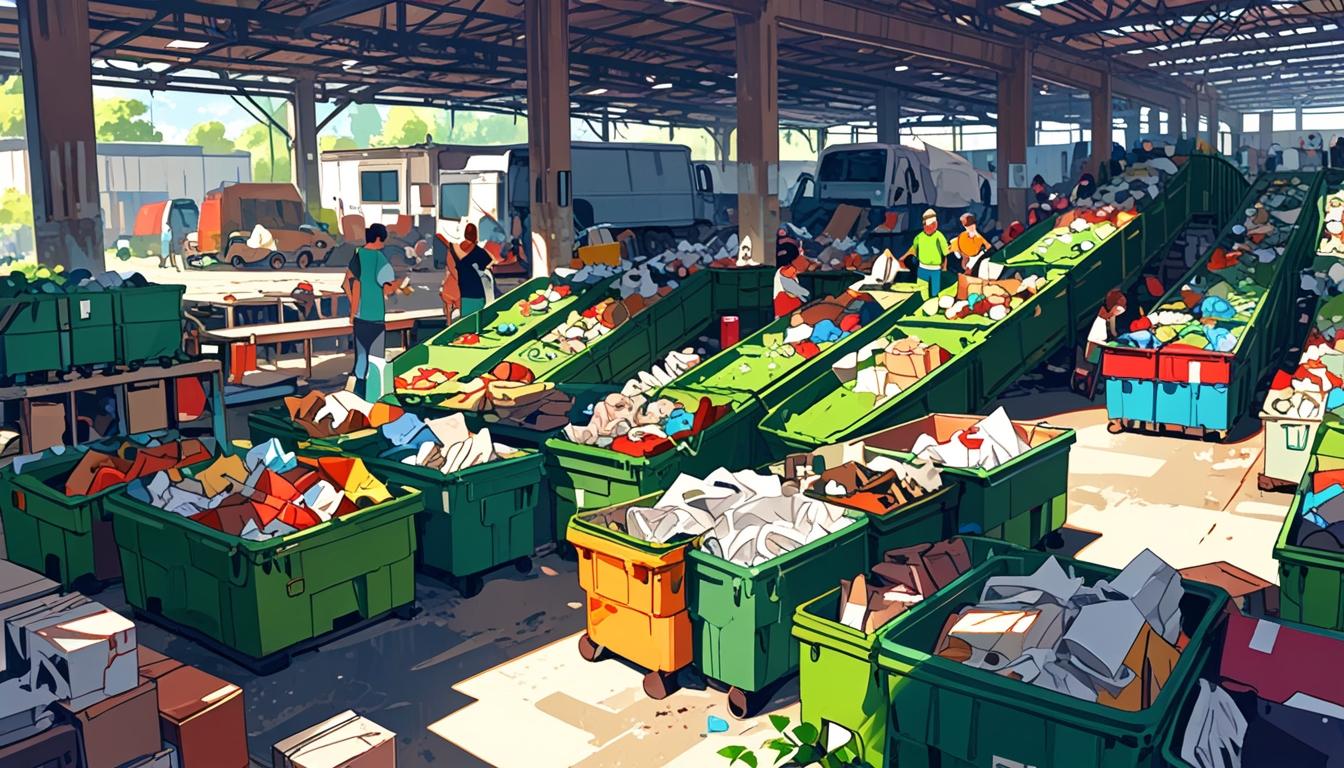The Zero Waste movement in Turkey has achieved recycling of 74.5 million tons of waste, aiming for a 60% recycling rate by 2035 while contributing significantly to the economy and environment.
The Zero Waste movement, initiated under the guidance of Emine Erdo?an, has marked a significant milestone in its efforts over the past seven years by recycling a substantial 74.5 million tons of waste. This initiative is aligned with broader environmental goals and is part of a concerted national effort to promote sustainability and responsible consumption patterns.
Since its inception, the Zero Waste project has steadily increased the recycling rate in Turkey, climbing from 13% in 2017 to 36.08% in 2024. The ambitious goal is to elevate this rate to 60% by 2035. Key materials being recycled include 32.5 million tons of paper and cardboard, 9.1 million tons of plastic, 3.1 million tons of glass, 6.4 million tons of metal, and 23.4 million tons of organic and other recyclable materials. In total, the movement has seen an increase in buildings adopting the Zero Waste Management System, which now encompasses nearly 205,000 structures.
Emine Erdo?an emphasized the importance of sustainable practices in her recent address at the United Nations on March 28, stating, “Let’s make the natural and long-lasting popular again. Let responsible production be the trend, not throwing away. We truly need new narratives, new stories, and new awakenings.” The theme for this year’s celebration of Zero Waste Day on March 30 is “TOWARDS ZERO WASTE IN FASHION AND TEXTILE,” with a focus on promoting both recycling and sustainable fashion practices.
In terms of economic impact, the Zero Waste movement has contributed 256 billion Turkish Lira (approximately $11 billion USD) to the Turkish economy, a figure that translates to savings equivalent to the annual electricity consumption of about 10 million households. In addition, significant water savings of 1.71 trillion liters have been achieved, which matches the water usage of Istanbul over a seven-year period. The initiative has also prevented the felling of approximately 552.7 million trees, showcasing its broad environmental benefits.
The movement extends its influence beyond land-based recycling efforts, having launched the Zero Waste Blue initiative in 2019. This branch of the project focuses on cleaning seas and oceans, with 20,500 truckloads of waste removed in the past five years. Furthermore, a deposit management system was introduced to incentivize recycling through the return of plastic and glass bottles as well as aluminum packaging.
The first international celebration of Zero Waste Day took place at the UN General Assembly in New York on March 30, 2023, where Emine Erdo?an attended as a special guest of UN Secretary-General António Guterres. In a move to globalize these initiatives, a Zero Waste Advisory Board has been established within the UN, with Erdo?an serving as its chair. In September 2023, the Zero Waste Goodwill Declaration was opened for signatures, with Turkish President Recep Tayyip Erdo?an being the first to sign, reflecting the government’s commitment to both national and international environmental standards.
As the Zero Waste movement continues to evolve, its leaders hope to amplify the initiative’s presence not only in Turkey but globally, encouraging nations worldwide to adopt similar practices that promote environmental sustainability and responsibility in waste management.
Source: Noah Wire Services



